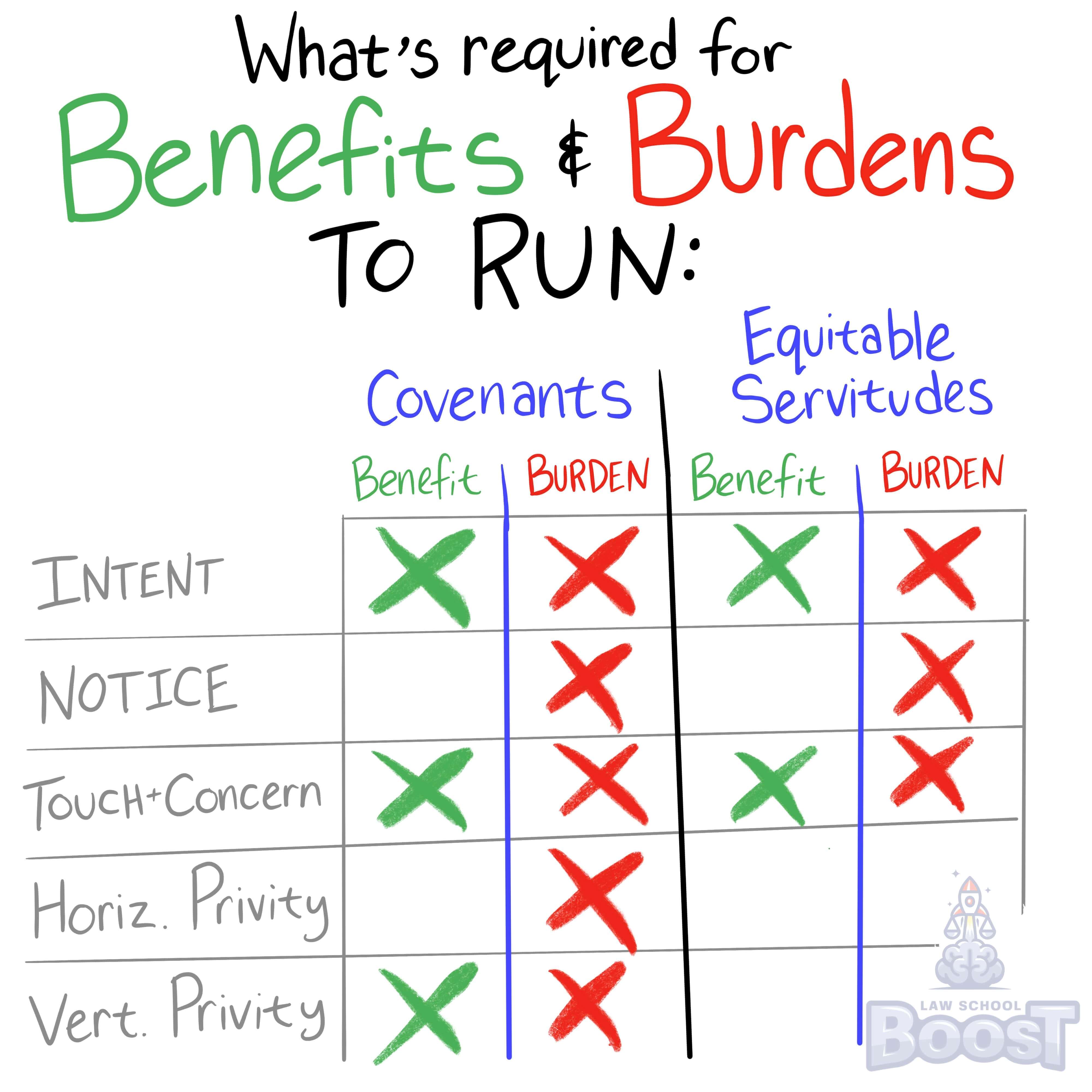😀
Real Property • Real Covenants
PROP#131
Legal Definition
When the promisor entered into the real covenant with the promisee, they must have shared some interest in the land that was independent from the covenant itself. For example, a landlord-tenant relationship or grantor-grantee.
Plain English Explanation
Horizontal privity exists when the covenant was set forth in the granting instrument between the original parties.
Hypothetical
Hypo 1: Amy owns Whiteacre. She's interested in selling part of Whiteacre to Bob, but Bob needs assurances that Amy will never use her land for commercial development. Amy agrees. Amy sells a portion of Whiteacre, called New Whiteacre, to Bob with a covenant that "for herself, her heirs, successors, and assigns, Whiteacre shall never be used for any commercial purposes." Result: Here, the horizontal privity requirement is met because Amy and Bob share an interest in Whiteacre independent of the covenant.
Hypo 2: Amy owns Whiteacre. Bob owns Blackacre, which is right next to Whiteacre. Bob offers Amy $10,000 if she covenants to never allow commercial development on Whiteacre. Amy agrees. Result: Here, the horizontal privity requirement is not met because Amy and Bob share no interest in land independent of the covenant.
Hypo 2: Amy owns Whiteacre. Bob owns Blackacre, which is right next to Whiteacre. Bob offers Amy $10,000 if she covenants to never allow commercial development on Whiteacre. Amy agrees. Result: Here, the horizontal privity requirement is not met because Amy and Bob share no interest in land independent of the covenant.
Visual Aids

Related Concepts
How is an equitable servitude created?
How is an equitable servitude terminated?
How may a covenant be terminated?
In assessing an equitable servitude, when will a benefit run with the land?
In assessing an equitable servitude, when will a burden run with the land?
In assessing real covenants, how will courts treat racially restrictive covenants?
In assessing whether a real covenant will run with the land, what constitutes intent?
In assessing whether a real covenant will run with the land, what constitutes notice?
In assessing whether a real covenant will run with the land, what is touch and concern?
In assessing whether a real covenant will run with the land, what is vertical privity?
What are the 5 equitable defenses against enforcement of an equitable servitude?
What is an equitable servitude?
What is a real covenant?
What is required for a benefit to run with the land?
What is required for a burden to run with the land?
What is the remedy for breach of an equitable servitude?
When may an equitable servitude be implied?
Which covenants always run with the land?


